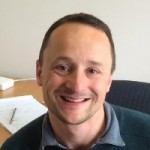The Program at a Glance
Location: Inria Paris Research Center, 2 rue Simone Iff, 75012 Paris (If your GPS cannot locate “rue Simone Iff”, enter “41-43 rue du Charolais 75012 Paris”). Conference Room Jacques-Louis Lions (ground floor). How to get there.
..
| 13:30-14:00 |
Registration |
| 14:00-14:05 |
Welcome: Antoine Petit, Inria CEO |
| 14:05-14:15 |
Inria@SiliconValley: An overview –Thierry Priol, Inria Dir. European & International Partnerships |
14:15-15:00
|
Keynote (Chair: Thierry Priol):
Carlos Canuda de Witt, CNRS, Inria NeCS and COMFORT Associate Team
“Optimal TrafficControl: eco-driving, green-waves, and traffic lights“ |
| 15:00-15:15 |
Break |
| 15:15-16:00 |
Keynote (Chair: Hélène Kirchner):
Deborah Agarwal, LBNL, Inria International Chair and DALHIS Associate team
“Developing an Understanding of Ecosystems and Energy-Water Interactions Through Data“ |
| 16:00-16:15 |
Break |
| 16:15-17:00 |
Keynote (Chair: Marc Tommasi):
Adrien Coulet, Université de Lorraine, Inria ORPAILLEUR team and SNOWFLAKE Associate Team.
“Predicting patient sensitivity to pharmacogenomic drugs, using EHR data” – Download presentation – |
| 17:00-17:30 |
Inria@SiliconValley Community meeting (Chair: Valerie Issarny):
Exchanging about the Inria@SiliconValley initiatives and how to best support Inria-California research & innovation collaborations |
| 19:00-22-00 |
Social Event: International Networking Party @Futur en Seine. REGISTRATION HERE
Wallonia-Brussels General Representation – 274 boulevard St Germain, Paris , 75007 – View Map |
The Keynotes in Detail
.
Carlos Canuda de Witt, CNRS
Optimal TrafficControl: eco-driving, green-waves, and traffic lights
Abstract: This lecture is devoted to a large public and concerns traffic control problems in urban areas. The talk addresses 3 popular topics in intelligent traffic systems. 1) Eco-driving concerns the possibility to suggest optimal speeds to each individual drives so that they can catch the green waves and to avoid unnecessary stops at the intersections. Traffic light sequences are known and given; the optimization is then done via optimal path search in graphs. 2) Bandwidth optimization consists in devising traffic light sequences maximizing the green-wave size. Liner programming is here used to compute the light phases and green/red periods. One novelty in this work is the possibility to include variable speed control, account for energy consumption, and varying traffic demands. 3) Traffic light on-line optimization consists in, computing in real-time and according to the road occupancy, a new control policy every cycle. This feedback strategy is based on a mathematical model (vehicle conservation), and a one-step head optimal control design, which can be formulated as a linear program problem. The talk will also shows some animated simulations, using a microscopic simulator. The material of this presentation is based on results of the “COMFORT” project (Associate Team between INRIA project-team NeCS and the Berkeley University project PATH), and the resulting publications.

Carlos Canudas de Witt ©Inria Photo G. Maisonneuve
About the speaker: Canudas-de-Wit, Carlos was born in Villahermosa, Tabasco, Mexico in 1958. He received his B.Sc. degree in electronics and communications from the Technological Institute of Monterrey, Mexico in 1980. In 1984 he received his M.Sc. in the Department of Automatic Control, Grenoble, France. He was visitor researcher in 1985 at Lund Institute of Technology, Sweden. In 1987 he received his Ph.D. in automatic control from the Polytechnic of Grenoble (Department of Automatic Control), France. Since then he has been working at the same department as “Director of Research at the CNRS”, where He teaches and conducts research in the area of control systems. He is the current leader of the NeCS GIPSA-Lab (CNRS)-INRIA team on Networked Controlled Systems. He has established several industrial collaboration projects with major French companies (FRAMATOME, EDF, CEA, IFREMER, RENAULT, SCHNEIDER, ILL, IFP, ALSTOM). He has been associate editor of the IEEE-Transaction on Automatic Control, from 1992 to 1997, AUTOMATICA, from 1999 to 2002. He is currently Associated Editor of: the Asian Journal of Control (since 2010), IEEE Transaction on Control System Technology (Since 2013), and the IEEE Transaction on Control of System Networks (since 2013). He holds the presidency of the European Control Association (EUCA) for the period 2013-15, and served at the IEEE Board of Governors of the Control System Society 2011-2014. He is IEEE Fellows from the Control Systems Society, and holds the ERD-AdG Free-ScaleBack from 2016-2021. His research publications includes (at Dec. 2014): 189 International conference papers, and 65 published papers in international journals, 5 books, 10 Book chapter, and holds 11 Patents. He has supervised more than 34 Ph. D. students, 11 Post-docs, and more than 35 Ms.
.
Deborah Agarwal, Lawrence Berkeley National Laboratory
Developing an Understanding of Ecosystems and Energy-Water Interactions Through Data
Abstract: Climate change, extreme weather, land-use change, and other perturbations are significantly reshaping interactions among the vegetation, soil, fluvial, and subsurface compartments of watersheds throughout the world. Tropical forests cycle more CO2 and water than any other ecosystem, and play critical roles in determining Earth’s energy balance. Intact tropical forests are also estimated to be Earth’s largest carbon sink, yet the stability of this sink is susceptible to a warming climate and disturbance processes. In this talk I will describe work underway to provide data analytics support and tools to help with understanding of these ecosystems. In addition, I will discuss emerging efforts to enable understanding of the energy-water interaction.

Deborah Agarwal ©LBNL
About the speaker: Dr. Deborah Agarwal is a Senior Scientist and the Data Science and Technology Department (http://dst.lbl.gov), Head at Lawrence Berkeley National Laboratory (LBNL). Dr. Agarwal’s current research focuses on developing computational tools to enable scientists to more effectively organize and use their data to understand and mitigate climate change. She has worked on projects involving watershed understanding, tropical forests, soil carbon, carbon capture, cosmology, particle accelerators, and satellite data. Dr. Agarwal earned her BS in Mechanical Engineering from Purdue University. Her MS and PhD are from University of California, Santa Barbara in Computer Engineering. Dr. Agarwal is also an International Chair working with the Myriads project-team at Inria in Rennes.
.
.
Adrien Coulet, Université de Lorraine
Predicting patient sensitivity to pharmacogenomic drugs, using EHR data
Abstract: Pharmacogenomics studies the impact of genetics on individual drug responses. Because genomic variants that impact drug response are usually rare, most of the knowledge in this field is not validated on large cohorts, as required by biomedicine standards. Electronic Health Records (EHRs) offer novel opportunities for studying hypothesis hard to test, such as the impact of rare genomic variants on patients. For this reason, we propose in the Snowflake Inria associate team (http://snowflake.loria.fr/) using EHRs to study the variability of drug responses and particularly to pharmacogenomic drugs. One of the difficulties is that most of the EHRs do not contain genetic data. Consequently we have to identify alternative variables (such as phenotypes, lab ordering) that may serve as proxies of genetic data to determine the sensibility to drugs.

Adrien Coulet
About the speaker: Since 2010, Adrien Coulet is associate professor in the Orpailleur group at the Inria Nancy-Grand Est in Nancy France. In 2008, he obtained his PhD in Computer Science from the University of Lorraine, while studying in the Inria Orpailleur group how knowledge discovery in biomedicine can beneficiate from formal knowledge representation. He spent two years as a postdoctoral research fellow at the Stanford Center for BioMedical Informatics Research, demonstrating the interest of biomedical ontologies in phramacogenomics. He is the PI of the French ANR project PractiKPharma (Practice-based evidences for actioning Knowledge in Pharmacogenomics, see http://practikpharma.loria.fr/) that starts in April 2016.